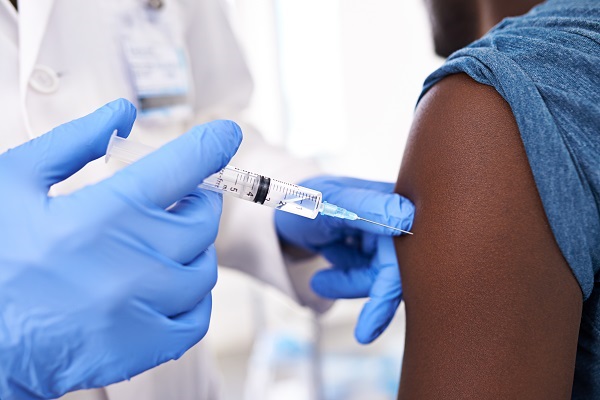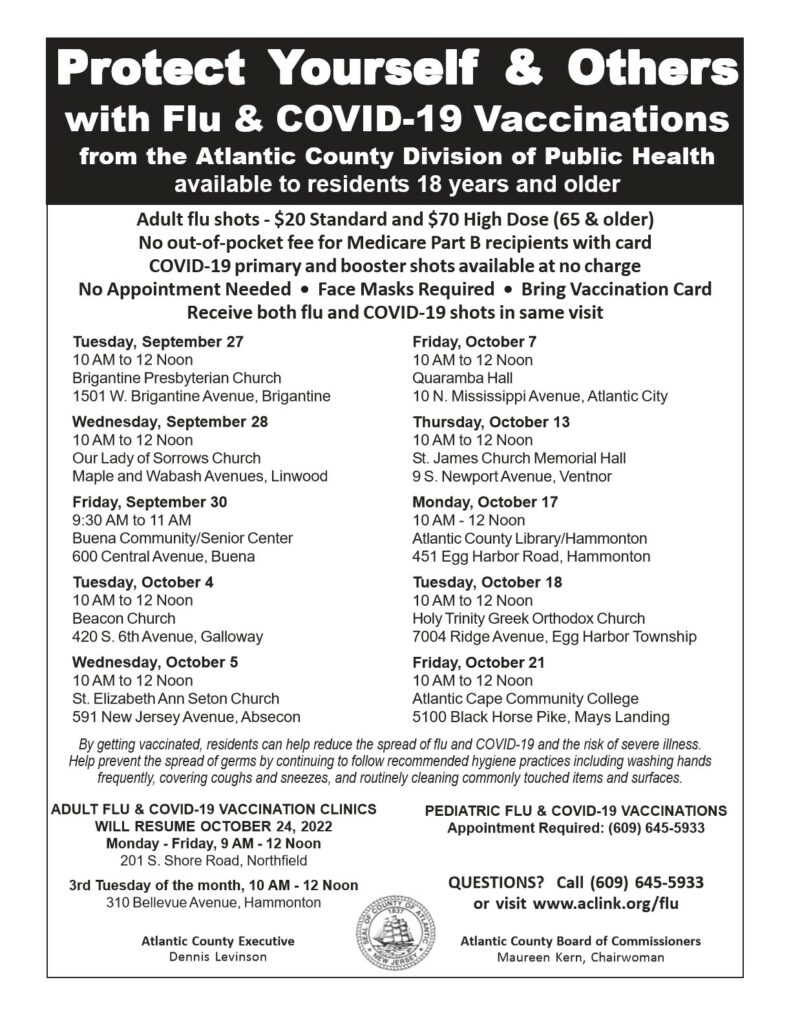 Flu and COVID-19 vaccination clinics.
Flu and COVID-19 vaccination clinics.
In an effort to help county residents protect themselves and others from contracting and spreading seasonal flu and COVID-19 viruses, the Atlantic County Division of Public Health is providing 10 public vaccination clinics for those 18 years and older Sept. 27 through Oct. 21.
The type of flu viruses and their severity may vary from year to year, but a flu shot still offers the best protection against infection, Atlantic County Executive Dennis Levinson said in a release. Flu and COVID-19 vaccines do not guarantee you will not get sick, but they do help lessen the severity and duration of the illness and may reduce the likelihood of hospitalization or death. That is why Atlantic County is once again providing these vaccination clinics in the public's interest.
Flu shots will be available for $20 for the standard vaccine and $70 for the high-dose vaccine for those 65 and older, but there is no out-of-pocket fee for Medicare Part B recipients who present their cards. The Division of Public Health will be collecting the fee to cover flu vaccine costs only; there are no additional fees.
Residents will also have a choice of the Pfizer or Moderna COVID-19 primary vaccines and boosters, including the newer bivalent boosters that target the initial virus as well as omicron BA.4 and BA.5 variants.
There is no fee for the COVID-19 vaccines or boosters. Residents are asked to bring their vaccination cards. Residents who want both a flu shot and COVID-19 vaccination may receive them in the same visit.
Face masks are required for entrance to all clinics. No appointments are necessary. Visit www.aclink.org/flu for a complete schedule of public clinic dates and locations.
The county will also provide pediatric flu and COVID-19 vaccinations in Northfield and Hammonton. Appointments are required for pediatric vaccinations and can be made by calling 609-645-5933.
COVID-19 and flu are both highly contagious respiratory illnesses that may produce severe infections resulting in hospitalization or death. While vaccinations may not prevent all infections, they can help reduce their severity and duration.
In the U.S., flu viruses typically circulate between October and May. Because it may take up to two weeks for the flu antibodies to develop in your body, the sooner you get a flu shot the better.
Flu and COVID-19 infections have similar symptoms that include fever of more than 100 degrees Fahrenheit, chills, body aches, fatigue, nausea and diarrhea. And both present greater risk to the elderly and those with underlying health conditions such as heart and lung disease.
The viruses may differ, however, in their onset. Flu symptoms tend to appear more suddenly than COVID-19, usually within one to four days of infection while COVID-19 symptoms typically do not appear until five days after infection or later, and sometimes not at all.
COVID-19 symptoms may also include a new and sudden loss of taste or smell, a runny or stuffy nose, a sore throat, and repeated shaking with chills.
Residents can help prevent the spread of germs, including flu and COVID-19, by continuing to practice recommended hygiene practices such as washing hands frequently, covering coughs and sneezes, staying home if sick, routinely cleaning common touch items and surfaces, and limiting contact with those infected.
 2022 Atlantic County Flu & COVID-19 Vaccination Clinics
2022 Atlantic County Flu & COVID-19 Vaccination Clinics